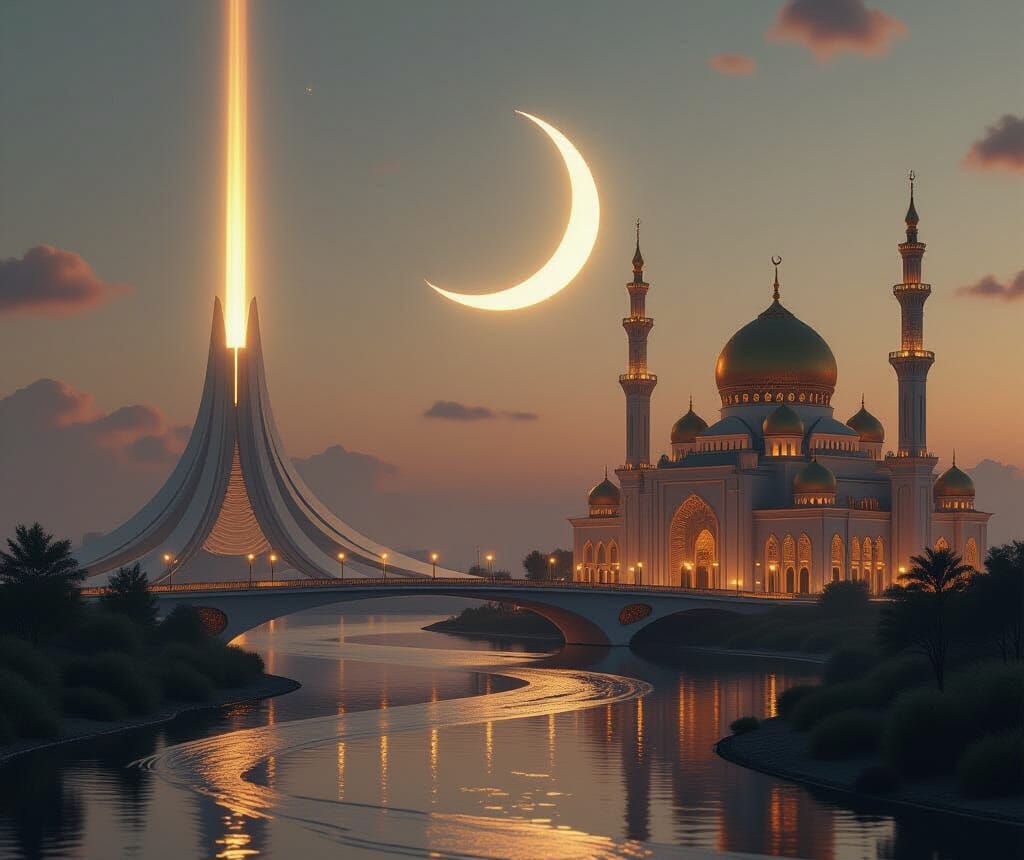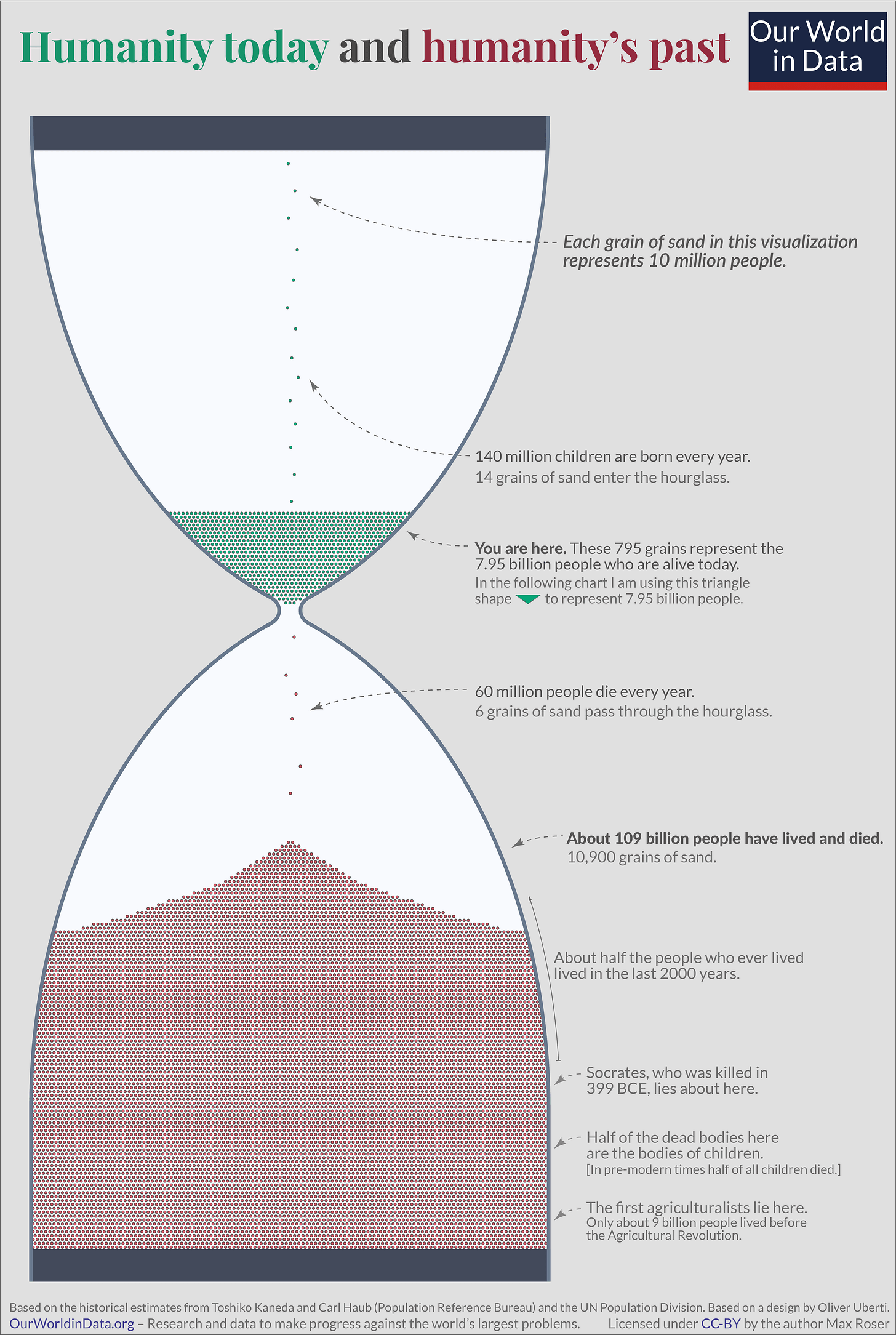Originally published on my Substack Jul 30, 2025 (slightly edited here)
Before taking the Effective Altruism (EA) introductory program, I'd thought I understood a lot about the world around me. I do read a lot and follow current events, locally and globally, or I thought I did. I discovered many new things and, more importantly, reaffirmed old, well-established ones. One of those peculiar moments of recognition was the framework of longtermism, which is celebrated throughout EA circles. It felt surprisingly familiar to me as a Muslim and I started to compare it to the concept of Islamic Wasatiyyah (Moderation).
This isn't a theological piece - far from it. It's more of a reflective exploration of how ancient wisdom and modern frameworks can illuminate each other.
The Triage Reality
We're in a constant state of triage. Every day, we make dozens of decisions: how to spend my limited time, where to direct my energy and resources. Should I give to a local charity, which one? Or maybe think globally and donate to an international organization.
If you had the same thoughts, you’re not alone.
In a world of infinite need and finite resources, the choices we make about where to focus our efforts have real consequences. Parents of sick children might have fewer options for receiving vaccines because I decided to go in another direction. How badly would future generations suffer because I prioritized the present? Will there be communities that remain under-served because their cause doesn’t receive the same publicity as others do?
Why So Many Questions?
You could call this over-thinking things and complicating the matter. “Why don’t I just donate to my favorite charity. Isn’t that the whole point?”
Actually, no.
Being worried about prioritization is actually a good quality in a human. It means you care. It means you want to do the best with whatever resources you have, however limited they might be.
More “effective”, don’t you think?
And that’s what I found refreshing about EA - the tools they provide to come up with possible answers: finding structure in giving, following logic and numbers rather than just emotions. There are actual formulas for evaluating impact and frameworks for comparing different interventions (Nerdy? Maybe, but worth checking). This approach doesn’t undermine your heart at all. What it does is cut through the noise of media appeals and campaigns, channeling these beautiful feelings into meaningful actions.
What is Longtermism?
Longtermism is the ethical view that positively influencing the long-term future is a key moral priority. It rests on three fundamental ideas[1]: future people matter just as much as those alive today; the future could be vast; and our actions influence how people in that future survive and flourish.
The term itself is relatively new, first coined by philosopher William MacAskill in 2017. It focuses on considering the consequences of our actions not just for the next few years or decades, but for centuries and potentially millennia to come. Think of it like a road map on how you make your decisions with all these future billions in mind.
Example: if you hear of a new power plant being built that would supply electricity to your entire town, do you care whether every precaution has been taken to protect the environment? Longtermism asks whether we're taking every precaution to protect the environment for hundreds of years into the future.
To understand why this matters so much, consider this striking visualization from Our World in Data:
The green section at the neck of the hourglass is all of humanity alive today: 7.95 billion people (and growing). The vast space above represents the potential future, the red below is the past. When longtermists talk about caring for future generations, this is the scale they're thinking about.
Familiar Framework
As a Muslim, I grew up with the concept of wasatiyyah, often translated as "moderation" or "the middle path." The Quran describes the Muslim community as "ummatan wasatan" [Quran 2:143]
"And so We have made you ˹believers˺ an upright (a balanced, moderate) community"
There's a hadith where Prophet Muhammad (Peace be upon him) advises against extravagance in ablution “even if you are on the bank of a flowing river” [Ibn Majah 425]
This is how we were brought up - with this essence of wasatiyyah in mind: you don’t waste because the resources are scarce, it’s the principle of it. Even when resources seem abundant, we're called to use them thoughtfully because our choices today shape the world of tomorrow.
Going through the reading for that part of the program, it all seemed familiar. Looking back at that hourglass visualization of humanity's timeline, I realized this long-term thinking wasn't new to me at all. It was like a light-bulb moment: “wait, I’ve heard that before!”
Universal Wisdom, Modern Tools
Week after week into the program, I realized something: EA draws from world wisdom as a whole. They don't constrict themselves to any single tradition - Christianity, Buddhism, Islam, and more. And let’s not forget that they address a global audience, each with their own beliefs, concerns, and established ways of giving. What they focus on is the approach: the frameworks and formulas needed to achieve the best outcomes.
So I shouldn't have been surprised that longtermism resonated with me through wasatiyyah. For you, it might be something else entirely - but that recognition will likely be there.
Reframing ancient wisdom doesn't make the new frameworks less valuable. On the contrary, we need it now more than ever. Resources are scarce, and these modern formulations help us make the best of what we have.
- ^
Fin Moorhouse. (January, 2021). Longtermism: An Introduction



